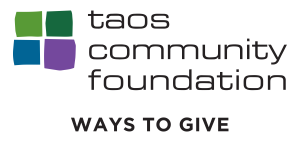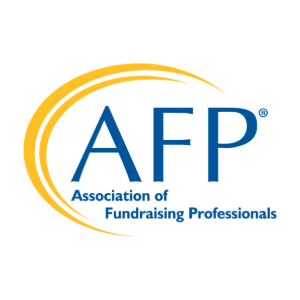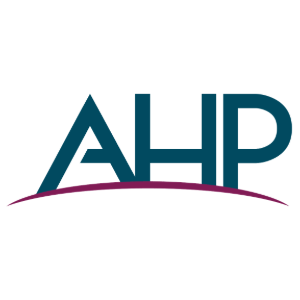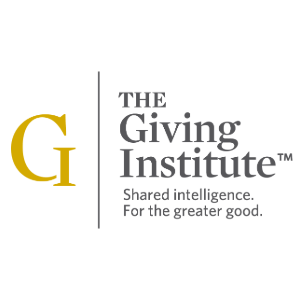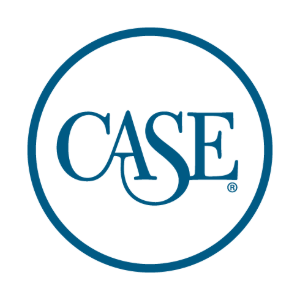Donors are the heart and soul of the Taos Community Foundation.
Anyone can be a philanthropist, and we’d love to find ways to help you elevate your giving. Our goal is to connect you to the causes you care about. Discover the perfect giving avenue, whether through our established funds, or a giving program crafted just for you.
Ways to Give
There are many ways to give to Taos Community Foundation and support the causes that are most important to you. We realize that charitable giving is personal, and that there can be complexity and intricacies that also guide one’s charitable goals, either short or long term.
The Foundation has a variety of funds established by individuals, families, corporations and businesses, all with wide-ranging interests. Establishing a fund with Taos Community Foundation is a simple process. Call Taos Community Foundation at 575-737-9300 or email info@taoscf.org to learn more.
To download a copy of Taos Community Foundation’s Gift Acceptance Policy, click here.
Fund Types
Donors may create Endowed or Intermediate funds according to their specific needs, or may contribute to a previously established fund that supports causes they favor.
Endowed Funds are permanent funds in which the assets are managed by the Foundation with an investment strategy of spending a portion of the earnings while preserving the principle investment for a longer-term strategy.
Intermediate Funds are non-endowed funds in that they are treated like endowment funds for the purpose of investment, while allowing for a larger allowance for charitable distribution.
Any one of these Fund structures may then be tailored to fit a specific type of fund, as noted below:
Endowed Funds
Endowed Funds are permanent funds in which the assets are owned by the Foundation and managed according to the charitable purposes designated. Since one of the goals of Endowed Funds is to preserve the principal, only the spendable amount is available for distribution.
Types of Endowed Funds are:
- Donor Advised
- Field of Interest
- Designated
- Agency/Non Profit Endowment
- Scholarship
- Unrestricted
With an Endowed Fund, donors can:
- Create a philanthropic legacy for the donor’s family.
- Make permanent provisions for favorite charities.
- Provide for the community through Field of Interest and Unrestricted Funds to help meet pressing needs.
- Help strengthen Foundation operations.
- Potentially increase the fund over time through investment.
Intermediate Funds
Intermediate Funds are non-endowed funds that are treated like endowment funds for the purposes of investment. All principal, subject to the sale of investment assets, is available for distributions. Types of Intermediate Funds are:
- Donor Advised (DAF)
- Field of Interest (FOI)
- Agency
- Designated
- Unrestricted
In an Intermediate Fund, all principal is available for distribution, but is not usually distributed.
This type of fund allows the donor to:
- Receive the services of Taos Community Foundation.
- Benefit from the Foundation’s investment strategies and spendable amount options.
- Have the flexibility of principal distributions from the fund.
This type of fund is not suitable for liquid investments.
Donors can use this type of fund to receive the benefits of an endowed fund and the flexibility of a non-endowed fund.
Designated Funds
When donors already know which charitable organizations they want to support, a Designated Fund offers the ability to designate a Fund for one or more charitable organizations. Individuals use this Fund to support a nonprofit organization in which they have a special interest.
For example, a donor may establish a Designated Fund for the benefit of [XYZ] Charity and name the executive director of the charity as the fund’s advisor. The executive director would have the customary advisory privileges associated with the Fund.
If the benefited organization ceases to exist or changes its status as a charitable organization, the Foundation’s Board, as authorized by its bylaws, may select an alternative organization compatible with the donor’s original purpose. The benefited organization itself may recommend to the Foundation other potential recipients of the spendable amount from the fund.
Endowed or Intermediate Funds Available.
Agency Funds
Agency Funds are variations of the Designated Fund, only it is the nonprofit organization that establishes the fund (instead of an individual).
Nonprofit organizations can benefit from the Foundation’s investment strategies to create endowments or intermediate funds using this type of Fund for support of operating expenses, programs or other needs.
Agency funds will also be acknowledged on the Taos Community Foundation website, and the named agency will receive a plaque in the TCF office.
Endowed or Intermediate Funds Available.
Field of Interest (FOI) funds
Field of Interest (FOI) funds benefit a broad charitable category rather than naming a specific charitable organization. These funds are held on the balance sheet of Taos Community Foundation and are directed through grant application cycles or initiatives, often under the guidance of an Advisory Committee.
Endowed or Intermediate Funds Available.
The current Taos Community Foundation Field of Interest Funds are:
Angel Fire Community Foundation Affiliate Fund:
Awards from this fund are granted in the Moreno Valley (Angel Fire, Eagle Nest).
Animal Welfare Fund:
Awards from this fund support organization working to raise awareness and care for local animal welfare.
Child Rite Fund:
This fund supports organizations that provide services for children with special-needs, and children in foster care and adoptive homes.
Community Education Fund:
This fund supports community educational projects.
Earl Stroh for the Arts Fund:
This Fund supports Arts Education in Taos.
Emergency Medicine Fund:
This fund supports nonprofits that provide basic needs and emergency medical support in Taos.
Give A Kid A Lift Fund:
This fund supports youth in our community to experience outdoor recreation, who otherwise wouldn’t be
able to afford it.
La Plaza Legacy Fund:
This fund benefits public access to technology, education, and access projects for community development.
LGBTQ+ Equity Fund:
This fund supports the LGBTQ+ population in Taos and the surrounding communities.
Music for Children Fund:
This fund provides grants to enrich learning and foster excitement about music and promote student participation in musical programs.
Sustainable Environment Fund:
This fund supports environmental preservation and sustainability in the Taos community.
Taos Public Education Fund (TPEF):
This fund supports Taos Public Schools, through the TPEF Teacher Grant cycle.
The Fund for Taos – Emergency Action Fund:
This fund provides immediate support to the community in times of disaster, such as the Covid-19 Pandemic, and Calf Canyon/Hermit’s Peak Fire.
Unmet Healthcare Needs Fund:
This fund grants towards nonprofits addressing emergency healthcare needs in the community.
Women and Girls Fund:
“Women Give Taos” Giving Circle Fund. This fund helps improve the lives of women and girls in our community.
Scholarship Funds
Scholarship Funds provide grants for educational purposes at both graduate and undergraduate levels. Donors may recommend an academic focus for a Scholarship Fund (e.g., nursing or the arts) and eligibility criteria (e.g., financial needs, academic merit, geographic residence, community service).
Only Endowed Funds Available.
Scholarship funds are subject to TCF board approval.
Guidelines are developed for each Scholarship Fund. Standard content of the guidelines includes:
- Purpose of the Scholarship Fund.
- Eligibility criteria (e.g., field of interest, minimum GPA, residency requirements, special eligibility requirements, etc.)
- Selection criteria (e.g., academic merit, financial need, community service).
- Application and selection procedure.
- Scholarship selection process.
- Amount of awards (if appropriate).
- Non-discriminatory clause.
Unrestricted Funds
Unrestricted Funds give the Foundation discretion to meet the changing or unforeseen charitable needs in the communities it serves. Donors can name these funds to honor or memorialize a loved one. Typically, the Foundation determines recipients through a competitive grantmaking process.
Donor Advised Funds
Donor Advised Funds are a personal giving vehicle that enable donors to receive an immediate tax deduction up to the maximum allowed by law for irrevocable contributions of cash, securities, real property, business interests and other gifts to public charities.
Donor Advised Funds may appreciate through a range of professional investment management options. They permit grants from annual earnings and principal to benefit favorite charities as determined by donor interests. Distributions from Endowed Donor Advised Funds, like all permanent funds, may be made only to the extent of the annual spending rate determined and set by the Board of Directors.
Endowed or Intermediate Funds Available.
LEGACY GIFTS
Planned giving is a critical part of community support for the Foundation. Since our inception in 1998, we have received millions of dollars in assets as the result of planned gifts. We are committed to providing planned giving options to assist donors and non-profits in the community. By including philanthropy in an estate plan, donors and their heirs often benefit from lower income and estate taxes. The Foundation offers a number of options to make a planned gift that will support favorite charities far into the future. All the following services are available to any person or business entity.
Options for planned giving include: Gifts by Will, Retirement Plan Assets, Charitable Trusts, Charitable Gift Annuities, Life Insurance and Gifts of Personal Residence. Explore information about planned giving below.
To learn more about legacy gifts, click here, and contact our team at 575-737-9300 or info@taoscf.org.
Gifts by Will
Gifts by Will are a simple and effective way to provide support for favorite charitable organizations. A bequest of a specific amount or a portion of the residuary estate can be made to a fund at the Foundation. The Foundation can provide sample language for consideration.
An attorney should review each estate plan from time to time to assure that estate planning documents are accomplishing the donor’s goals. Bequests to the Foundation may include:
- Outright Bequests: The donor directs in his or her will that certain assets be transferred to the Foundation in the form of cash, real estate, business interests, personal property, life insurance or other property.
- Residuary Bequests: The donor makes a gift of all or a portion of his or her residuary estate to the Foundation and other qualifying charities.
- Contingent Bequests: The donor makes a bequest that will come to the Foundation only if a specific contingency occurs. For example, “I give $10,000 to my niece, Judy, but if Judy predeceases me, I give that amount to Taos Community Foundation for Taos New Mexico.
- Remainder Interests: The donor creates a Charitable Remainder Trust by will, providing for annual payments to be made to one or more named individuals for the lifetime of these individuals, or for a specified period of time not more than 20 years, after which the remainder will be distributed to a fund.
- Income Interests: The donor creates a Charitable Lead Trust by will to provide that the income be paid to the Foundation and other qualifying charities for a specified period of time, after which, the remainder will be distributed to individuals named in the will.
Retirement Plan Assets
Assets held in Qualified Retirement Plans or Individual Retirement Accounts (“IRAs” can be gifted to charity. The Foundation can help donors review possible tax effects of using retirement plan assets for charitable giving. Under current tax law, a gift of qualified plan assets to a charity during life is a taxable event for the donor, but a gift of qualified plan assets at death can reduce adverse tax consequences and provide a wonderful gift.
The donor may name the Foundation (or a fund) as the designated beneficiary of retirement account assets upon either their death or the death of family beneficiaries. The Foundation recommends consultation with a professional advisor to complete such forms.
The types of retirement plan assets accepted by the Foundation include:
- 401(k) Plans
- 403(b) Plans
- IRAs
- Roth IRAs
- Keogh Plans
- SEP Accounts
Charitable Trusts and Charitable Gift Annuities
Using a Charitable Remainder Trust (“CRT”), the donor irrevocably transfers cash, securities or other property to a Trustee, who manages those assets and makes payments to the donor or other named individuals for their lifetimes or for a period not to exceed 20 years.
On the death of the beneficiary (or surviving beneficiary if more than one), the assets of the Trust are distributed to the Foundation or other named charitable beneficiaries.
Charitable Remainder Annuity Trust: The Trustee pays the donor (or other named individual beneficiaries) a fixed dollar amount annually from the Trust for the life or lives of the income beneficiaries or for a period not to exceed 20 years.
Charitable Remainder Unitrust: The Trustee pays the donor (or other named individual beneficiaries) a fixed percentage of the net fair market value of the Trust’s assets, as determined each year, for the life or lives of the beneficiaries or a period not to exceed 20 years.
There are variations of Unitrusts:
Net Income with Makeup Unitrust (“NIMCRUT”):
The Trustee pays the beneficiaries the lesser of the net income or a fixed percentage of the value of the Trust assets stated in the Trust Agreement. In years when the net income is less than the fixed percentage, the Trustee may pay the lesser amount but distribute the shortfall in subsequent years if the net income exceeds the fixed percentage. NIMCRUTs may be useful when the contributed assets do not produce a high level of income and may be difficult to see quickly or if the beneficiaries do not have an immediate need for income.
Net Income Unitrust (“NICRUT”):
Similar to the NIMCRUT, except there is no makeup provision.
FLIP Unitrust or FLIP Unitrust with Makeup:
A FLIP Unitrust begins as a NIMCRUT but is later converted to a straight CRT when the Trust sells certain assets such as real property, a business or other hard-to-value assets. After the sale, the CRT pays the non-charitable beneficiary the amount stated in the Trust Agreement. A FLIP Unitrust may be attractive to a donor who desires to contribute to hard-to-value assets and to receive a stable income but does not know when the assets will sell.
Charitable Lead Trusts (“CLT”): Payments are made to a fund or other charitable beneficiaries for a period of years or for the lifetimes of one or more named individuals. The assets are distributed to designated non-charitable beneficiaries such as a spouse or other family member at the end of the term of the Trust. CLTs provide current gifts for charitable purposes and can result in substantial savings of estate and gift taxes.
The Foundation strongly recommends that donors meet with a professional advisor to make a CLT fit within the overall estate plan because of its complexity and possible tax consequences.
Life Insurance
Donors may make a gift of Life Insurance to the Foundation either by irrevocably designating the Foundation as the owner and beneficiary of the policy or by designating the Foundation as a beneficiary of all or a portion of the proceeds of a policy. Change of ownership and beneficiary designation forms may be obtained from the insurance representative.
Prior to accepting a policy requiring ongoing premium payments, the Foundation will obtain a written agreement from the policyholder detailing how premiums will be paid. The donor may also elect to cash out existing life insurance policies and donate the proceeds to his or her fund.
Gifts of Personal Residence
Donors may obtain income and estate tax benefits by contributing a Personal Residence or Farm to the Foundation and retaining the right to occupy the property during their lifetimes. The Foundation will receive the entire interest in the property upon the donor’s death. The Foundation normally will not accept gifts of the remainder interest in personal residences or farms when the property is mortgaged; however, the Foundation may in certain instances make an exception.
The IRS bargain sale rules may apply to the transaction.
Asset Transfer
Stock transfer instructions can be obtained by calling Taos Community Foundation at 575-737-9300.
When you are transferring stock, please notify the Foundation of your gift. Banking privacy laws do not allow identification of donors or brokerage houses when the gift is made.
DONOR BILL OF RIGHTS
As a donor, you should have high expectations.
The following Donor Bill of Rights was created by the Giving Institute, Association for Healthcare Philanthropy, the Association of Fundraising Professionals, and the Council for Advancement and Support of Education. It’s a helpful guide to determine if you are being treated fairly and respectfully for your generous grants and contributions.
The Donor Bill of Rights
Philanthropy is based on voluntary action for the common good. It is a tradition of giving and sharing that is primary to the quality of life. To ensure that philanthropy merits the respect and trust of the general public, and that donors and prospective donors can have full confidence in the nonprofit organizations and causes they are asked to support, we declare that all donors have these rights:
- To be informed of the organization’s mission, of the way the organization intends to use donated resources, and of its capacity to use donations effectively for their intended purposes.
- To be informed of the identity of those serving on the organization’s governing board, and to expect the board to exercise prudent judgment in its stewardship responsibilities.
- To have access to the organization’s most recent financial statements.
- To be assured their gifts will be used for the purposes for which they were given.
- To receive appropriate acknowledgment and recognition.
- To be assured that information about their donation is handled with respect and with confidentiality to the extent provided by law.
- To expect that all relationships with individuals representing organizations of interest to the donor will be professional in nature.
- To be informed whether those seeking donations are volunteers, employees of the organization or hired solicitors.
- To have the opportunity for their names to be deleted from mailing lists that an organization may intend to share.
- To feel free to ask questions when making a donation and to receive prompt, truthful and forthright answers.
